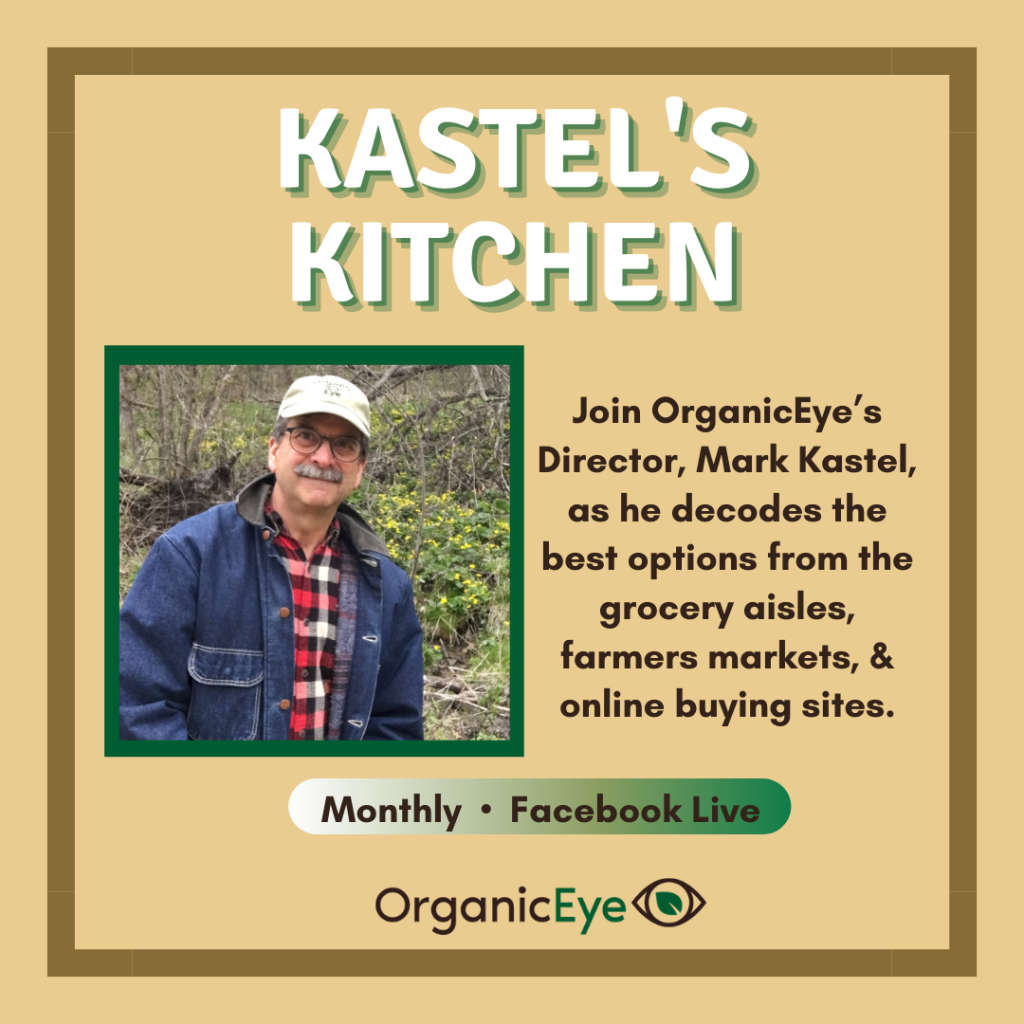Food Additives and Chemicals in Organics???
Unless you are eating fresh, whole organic food, it isn’t enough to just look for the USDA Organic logo—you must become a label reader!
Now that corporate agribusinesses own most of the popular organic name brands, many of the industrial-scale farms and corporations are practicing “organic by substitution.” They would like to change as little as possible between their conventional products and what they advertise as organic (and what we all expect to be the benchmark for safety and purity). And with an army of lobbyists in Washington, they are all too often winning the day in deliberations in front of the National Organic Standards Board and USDA officials.
Whether they are natural or synthetic, some of the non-organic compounds that are currently allowed on the National List of Approved Substances are potentially unhealthy—and a few are even carcinogenic. Is that really Organic?
OrganicEye’s Director, Mark Kastel, illustrates why it’s so important to be a good label reader, and hopefully inspire you to join OrganicEye in their work in Washington and their efforts to reign in the corrupting influence corporations are having on organics.

About Kastel’s Kitchen
Because of lax oversight by USDA, choosing certified organic food is just the first step in ensuring that you’re buying the best products for yourself and your family. In our new series, OrganicEye’s Director, Mark Kastel, will tap his many years of experience in the organic movement to decode the best options from the grocery aisles, farmers markets, and online buying sites.
His perspective is based on over three decades of personal experience as a shopper, gardener, certified organic farmer, and organic business/cooperative consultant, as well as his work as the country’s preeminent organic industry watchdog for the past 16 years.
Mark first came to organics after nearly being disabled from pesticide poisoning. Even though he was already eating a healthy, whole food diet, he credits his move to all-organic—on the recommendation of one of the country’s preeminent environmental allergists—with his recovery. He now enjoys robust health, not only due to avoiding the agrochemical and drug residues often found in conventional food, but because of the exceptional nutrition inherent in true organic production. He has skin in the game and a passion for protecting the authenticity of everyone’s organic food, including his own.

